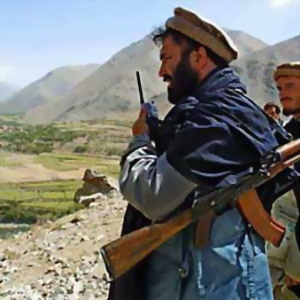Faltering Hopes, Faltering Security

IRD: What were the likely causes of the two deadly attacks on Hamid Karzai’s close aides and messages they bear for the Afghan government?
RF: In the larger context, they prove the stark insecurity that exists in Afghanistan, partially due to the presence of foreign troops and the infighting between various political circles of the country that each have their proprietary military forces.
Despite all the promises made by the West –particularly Washington- about establishing security in Afghanistan, they have clearly failed, and the assassination of two high-profile Afghan officials is clear evidence of that. Meanwhile, these assassinations took place on the verge of substantial political developments in Afghanistan. American troops are scheduled to leave the country in the near future. In this context, the murderous attempts carry significant meaning.
The assassinations also demonstrate that Afghanistan is unable to establish security within its borders, at least for the near future. What makes the situation more complicated and hard to explain is that the Taliban assumed responsibility for the murders right when fourteen of its high-ranking members were removed from a UN black list and admitted as civil figures once again.
IRD: How will the assassinations influence the national reconciliation process between the Afghan government and radical Islamists?
RF: I don’t think political initiatives will have any chance of success in the short term or even middle term, just as they have failed to bear any fruit within the past ten years. The problems in Afghanistan have not been formed overnight. Lack of security in this country calls for a study of the last two centuries of Afghanistan’s history.
IRD: Could a strategic defense pact between the US and Afghanistan bring more stability to Afghanistan?
RF: Washington failed to bring stability to Afghanistan, even with a direct presence in this country and the deployment of tens of thousands of its soldiers. It will hardly be able to with a strategic pact; attempting to establish security in this country via dispersed military bases.
The presence of foreign military troops in Afghanistan was essentially accompanied by war, terror and bloodshed during the past four decades. From the 1978 communist coup in Afghanistan, and the subsequent occupation of the country by the Soviet Union, the country plunged into chaos. The same story is happening now. It is clear that presence of foreign troops in this country is directly or indirectly the basic problem of Afghanistan. Even the Taliban fits into this category; they were Afghan forces supported by foreign powers.

